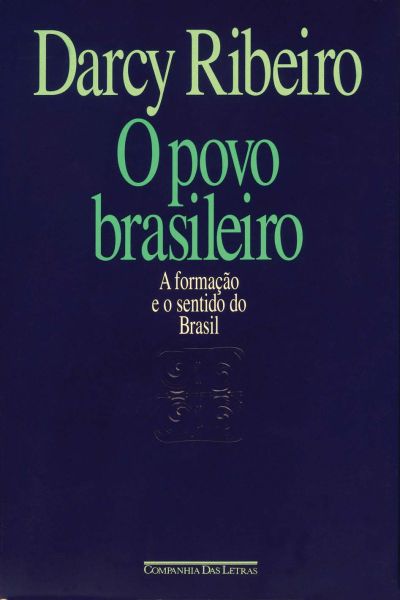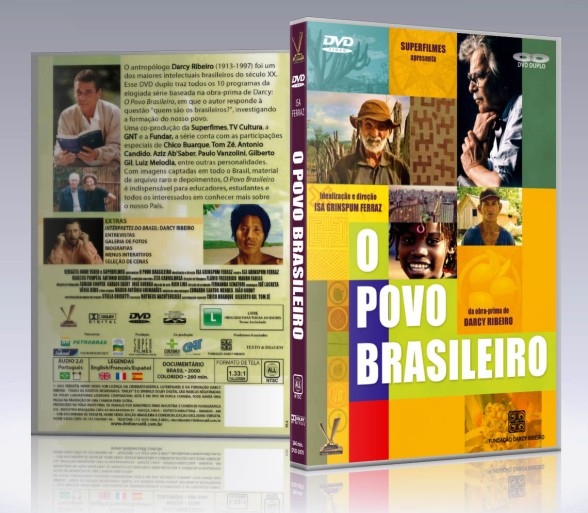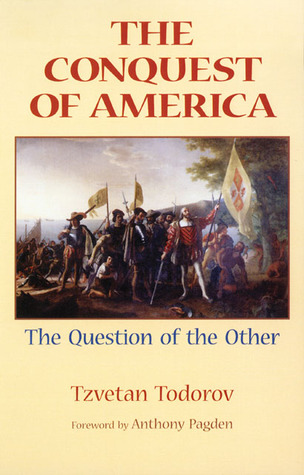The Conquest of America and the Imperialist Siphon
Eduardo Carli de Moraes
“In 1492, the natives discovered they were indians, discovered they lived in America, discovered they were naked, discovered that Sin existed, discovered they owed allegiance to a King and Kingdom from another world and a God from another sky, and that this God had invented the guilty and dress, and had sent to be burnt alive who worships the Sun, the Moon, the Earth and the Rain that wets it.” – EDUARDO GALEANO
Fellow earthlings!
I’m speaking to you from America, a continent that was “discovered” more than 500 years ago, thus finally beggining its relations with the so-called Old World. Or at least it’s told so in tales written by Europeans… The first thing that we tend to forget or overlook when we get hypnotized by history as written by European White Christians is this: the name this continent was given by the ones who have “discovered” is clearly European, a tribute to a conquistador, señor Américo Vespúcio. The second thing that brings awe to my conscience is to discover that, during the whole Imperialist/Colonialist epoch, a huge magnitude and diversity of procedures that we nowadays deem utterly imoral and unnaceptable were employed in mass scale. Not only did the Europeans sucked out the wealth of these invaded lands, they used slave labour and genocide of indigenous populations to do it. Not only did they try to force their civilization and culture on the native populations, they brought along in their ships not only their Bibles and crosses, but also their guns and their germs.
Many historians, sociologists, anthropologists and artists have argued – Uruguyan writer Eduardo Galeano or Brazilian anthropologist Eduardo Viveiros de Castro, for example – that the Industrial Revolution in Europe got kick-started by the wealth that was shipped out of colonies in America. Capitalism is basically born out of robbery. Just think of all the tons of gold that were taken from Minas Gerais, in Brazil, or all the silver who was extracted from Potosí, in Bolívia, and then shipped to Europe, being pocketed by enriching capitalists and noblemen. The people who originally lived in this Land for millenia prior to the White Men Invasion, the people who had lived since time immemorial in this land that afterwards its conquerors would baptize “America”, they didn’t get a chance to choose their own path, nor could they remain faithful to their own past. Europe imposed on the indigenous populations not only its culture, its civilization, its moral values, its religious beliefs; it acted as a material force of great power, conquerors by force, who left a shockingly huge trail of blood and death while imposing their modes of production.
Genocide and ethnic cleansing were enduring historical realities in this land after the Europeans for the first time reached these beaches with their ships. The wealth produced in the continent by means of forced-labor, either from people kidnapped from Africa or enslaved native populations, was sent away, shipped abroad, to feed the greedy bellies of European kings and queens, landowners and cardinals, the “cream” of the European aristocracy. Can we understand History rightly if we forget this colossal event, I mean, the massive stream of wealth that went from America to Europe in the centuries following “Discovery”? Welcome to the birthplace of modern Capitalism!
The so-called Discovery of America (what an euphemism!) is actually something else: the continent wasn’t simply “discovered”, it was invaded, conquered, plundered. Tzvetan Todorov very aptly calls his excellent book on the subject The Conquest of America. When the Catholic kingdoms of Spain and Portugal set out to cross the ocean and reach the continent later to be called America, they weren’t arriving on virgin, inhabited land. According to estimates by researchers such as Pierre Clastres and Todorov, there were 80 million people living in the continent in 1492, when the population of planet Earth was of about 400 million. Of these 80 million indigenous inhabitants of pre-Columbian civilizations and tribes, how many survived the invasion of foreign white europeans? Todorov estimates that, only in Mexico, there were 25 million people prior to the invasion; a century later, in 1600, there were only 1 million left. It’s a genocide of such proportions that our minds almost refuse to fully realize it. But if we take America as a whole, the numbers are worse – and even more shocking: prior to the Europeans’ invasion, there were 80 million people living here; one century later, 90% had been wiped out. This is not only genocide, but ethnocide – to apply a distinction made by Clastres in a excellent article in Archeology of Violence. What ensued from the Conquest was not only the murder of individuals in massive scale, but the death of whole cultures and civilizations, with all its temples and buildings, its mythology and its history, all tramped underfoot by the Europeans’ unmerciful quest for profit.
John Berger, in his book (and BBC Series) Ways of Seeing (1972), has something quite interesting to say about this theme. He remembers his school days, when he was taught about “heroic voyages bringing human civilization to all the world”. “It tends to be forgotten”, reminds us Berger, “that these voyages were the start of the European slave trade, and the traffic which began to siphon the riches of the rest of the world into Europe.” (BERGER, J. 3rd Episode) I consider these remarks very bright, especially for the image they evoke, that of the siphon. Europe really did exactly this: it sucked out, with its Imperial Siphon, the fruits of labor produced in this newly-discovered land. An immense transfer of wealth ocurred: from the authentic producers of these wealth – that did all the work and received none of the pay – to capitalists in Europe. In Paul Thomas Anderson’s There Will Be Blood, there’s another very pedagogical metaphor employed by Daniel Day Lewis’ character, when he explains a process by which he stole oil from the properties of others: imagine a milkshake with two drinkings straws. One is for its legitime “owner”; the other from an intruder. Europe’s drinking straw is the intruder’s, and the Europeans can be understood, from 1492 on, as stealers of the milkshakes of wealth they enslaved others to produce.
It’s then that I start to suspect – a suspicion that gives me shivers of indignation and disgust… – that slavery was so present in the dawn of the Commercial-Industrial society because one would be impossible without the other, one is the condition of the other. Slavery and Capitalism: haven’t they “evolved” together, like siamese twins? And when slavery was officially abolished from all colonies, what happened them? Did the system underlying it get utterly transformed? Or the same system went on, with just a little reformation in secondary elements of its machinery, only with slaves being substituted by underpaid wage workers? And can it be said that in the 21st century Imperialism is dead and gone? Or does it live on, masked and disguised behind the new vocabulary that capitalism developed? Are “Free Trade” or “neoliberalism” just techniques for some corporations to plunder the wealth produced by empoverished workers, just ways to keep on opression, inequality and obscene concentration of capital in few hands?
To answer some of these questions, let’s summon a powerful voice from Africa, Mr. Frantz Fanon (1925-1961). Writing after the II World War, when colonies in Africa were still struggling for their independences from European rulers, Fanon’s book The Wretched of the Earth is born out not only of theoretical thinking or historical research, but mainly from lived experience. In the context of the Algerians fight against French imperialism, Frantz Fanon speaks a language that White Men from the Developed World aren’t used to hearing – and his writings impressed and inspired important Europeans intellectuals, from Jean-Paul Sartre to Jean Ziegler. “Let us not lose time in useless laments and sickening mimicry. Let us leave this Europe which never stops talking of man yet massacres him at every one of its street corners, at every corner of the world. For centuries it has stifled virtually the whole of humanity in the name of a so-called ‘spiritual adventure’… Natives of all the underdeveloped countries unite!” This is the sound of Africa rising against centuries of foreign dominion and attempting to break its chains. This is the voice of someone who wishes to rewrite history in order to tell the whole truth, and not only the convenient fabrication of Europeans. This is the voice of someone who is quite aware, at the dawn of the 1960s, that Latin America and Africa have been systematically robbed, and that won’t forget that the opulence of the so-called Developed World is built upon exploitation, opression and slavery.
“We must refuse outright the situation to which the West wants to condemn us. Colonialism and imperialism have not settled their debt to us once they have withdrawn their flag and their police force from our territories. For centuries the capitalists have behaved like real war criminals in the underdeveloped world. Deportation, massacres, forced labor, and slavery were the primary methods used by capitalism to increase its gold and diamond reserves, and establish its wealth and power.
The European nations achieved their national unity at a time when the national bourgeoisies had concentrated most of the wealth in their own hands. Shopkeepers and merchants, clerks and bankers monopolized finance, commerce, and science within the national framework. The bourgeoisie represented the most dynamic and prosperous class. Its rise to power enabled it to launch into operations of a crucial nature such as industrialization, the development of communications, and, eventually, the quest for overseas outlets…
Today, national independence and nation building in the underdeveloped regions take on an entirely new aspect. In these regions, except for some remarkable achievements, every country suffers from the same lack of infrastructure. The masses battle with the same poverty, wrestle with the same age-old gestures, and delineate what we could call the geography of hunger with their shrunken bellies. A world of underdevelopment, a world of poverty and inhumanity. But also a world without doctors, without engineers, without administrators. Facing this world, the European nations wallow in the most ostentatious opulence. This European opulence is literally a scandal for it was built on the backs of slaves, it fed on the blood of slaves, and owes its very existence to the soil and subsoil of the underdeveloped world. Europe’s well-being and progress were built with the sweat and corpses of blacks, Arabs, Indians, and Asians. This we are determined never to forget.”
FRANTZ FANON. The Wretched of the Earth. Pg. 53 – 57.
- RECOMMENDED FURTHER READING:

EDUARDO GALEANO’s The Open Veins of Latin America. DOWNLOAD E-BOOK (PDF, 3MB, at libgen.org)

“Guns, Germs, and Steel: The Fates of Human Societies”, by Jared Diamond. Download E-book.

 DARCY RIBEIRO – UM BRASILEIRO
DARCY RIBEIRO – UM BRASILEIRO






